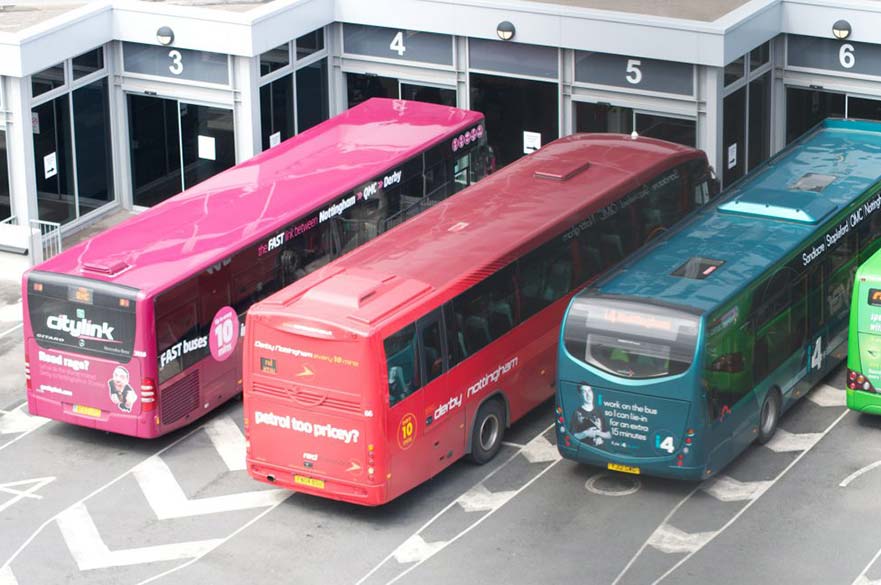People across Derby could soon be able to make greener, cleaner journeys on key bus routes after plans to bid for Government funding were given the green light.
On 6 December, Cabinet and bus operators approved a recommendation to submit a bid for funding from the second tranche of the Department for Transport's Zero Emission Bus Regional Areas scheme (ZEBRA 2).
The scheme was launched last year to allow local transport authorities to bid for funding to purchase zero-emission buses. ZEBRA 2 is now open for bids from all local authorities in England outside London, with applications to be prioritised from those that haven’t previously received funding, such as Derby.
Buses and coaches already have the lowest carbon footprint per passenger of any form of motorised transport.
Now, working with bus company partners trentbarton and Arriva, the Council is developing plans that would replace diesel buses and provide infrastructure on four bus routes and reduce carbon emissions further.
Councillor Carmel Swan, Cabinet Member for Climate Change, Transport and Sustainability said:
Delivering better transport choices for Derby is a key priority. It is an ambition of the Council to work on future fuels that will both drive down our carbon emissions and offer environmentally-friendly transport options for all residents and visitors to Derby.
Good air quality is hugely important to everyone and the Council recognises that zero-emission buses can make a significant contribution to meeting our climate goals. We must also cut air pollution, reduce noise and provide more frequent, reliable bus services.
The scheme proposed by trentbarton includes buying hydrogen fuel cell vehicles to replace the diesel bus fleet on two services:
- the sixes between Derby, Belper, Ripley and Bakewell
- the skylink, including skylink Derby, skylink Nottingham and skylink express
The scheme would also include infrastructure to produce and store hydrogen at trentbarton’s depot in Derby city centre.
Hydrogen buses have been introduced in Aberdeen, Birmingham, London, Belfast, and Dublin. The buses are as efficient as electric equivalents, with refuelling taking less than 10 minutes.
Tom Morgan, Managing Director of trentbarton said:
This bid marks significant investment in buses within the East Midlands and most specifically in Derby City, reiterating trentbarton’s commitment to high quality, customer-focused and sustainable public transport within the community we serve.
If granted, this bid will deliver a consistent long-term demand for hydrogen in the area which we expect will be the key to unlocking further growth in this future fuel, accelerating our decarbonisation strategy, with buses at the heart of it, and resulting in cleaner air for everyone.
Arriva’s scheme proposes to replace diesel buses with electric vehicles on two routes to Alvaston and Sinfin as well as infrastructure for charging the vehicles at the Arriva depot on Ascot Drive in Derby.
Each new bus won’t give off any exhaust fumes, helping to improve air quality across the city.
Phil Cummins, Engineering Director for Arriva said:
It is our ambition as a business to make sustainable bus transport the best option for people and we are excited to be working together to pitch for Government funding, which has the potential to bring electric vehicles to Derby.
